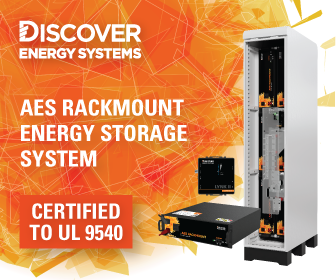American Battery Technology Company Expands Research Development Center at the University of Nevada, Reno
American Battery Technology Company, (ABTC) (OTCQB: ABML), an American critical battery materials company that is commercializing both its primary minerals manufacturing and secondary minerals lithium-ion battery recycling technologies, establishes new laboratories at their Research Development Center focused on domestically and sustainably sourced battery metals extraction and qualification processes currently housed at the Nevada Center for Applied Research (NCAR) located at the University of Nevada Reno (UNR).
"The abilities to independently manufacture battery cathode grade lithium hydroxide, nickel, cobalt, and manganese products from our recycling operations, to manufacture battery cathode grade lithium hydroxide from our primary Nevada-based lithium-bearing sedimentary materials, and to be able to implement our own internally-developed analytical chemistry procedures to certify the quality of our specialty chemical products is a true enabler to accelerating the commercialization of our in-house developed processes and a differentiator within this industry," stated ABTC CEO Ryan Melsert. "With this expansion into our fifth laboratory within the NCAR at UNR, we can now perform all of these operations within a single facility, further accelerating our path forward."
Since March 2021, ABTC's technology team has taken residence at NCAR development facilities, and has since expanded from a single laboratory to five private and shared laboratories totaling over 3,000 ft2. The five-fold laboratory space expansion is matched by ABTC's recent five-fold expansion in technical personnel in the company's recent and continued acquisition of highly-competitive technical talent.
ABTC's Research Development Center team uniquely focuses on in-house, first-of-kind developed battery metals extraction technologies for both the recycling of spent batteries and for the manufacturing of primary battery metals from domestic-US based resources. The company's in-house developed systems have the ability to recover and purify battery metals to the rigorous quality standards required to sell them directly back into the domestic battery manufacturing supply chain.
The expanded laboratories and technical team directly support the company's key projects, including its Tonopah Flats Lithium Exploration Project , its USABC demonstration project , and its pre-commercial scale lithium-ion battery Recycling Pilot Plant currently under construction.
The ABTC Tonopah Flats Lithium Exploration Project , supported by its recently awarded grant from the US Department of Energy, Advanced Manufacturing Office and in partnership with DuPont, utilizes the company's first-of-kind processing train for the manufacturing of battery grade lithium hydroxide from Nevada-based sedimentary claystone resources. The technologies for this processing train were developed through rigorous first-principles physics-based design, and have been demonstrated at bench scale to be able to produce these battery grade lithium products with a disruptive step change improvement in cost of production and environmental footprint.
Additionally, the ABTC team has also developed and is commercializing an in-house designed set of technologies for the integrated recycling of lithium-ion batteries and the recovery and manufacturing of key battery metals including lithium, nickel, cobalt, manganese, and copper. The company currently has under construction its pre-commercial lithium-ion battery recycling plant in northern Nevada, and is undergoing a commercial scale development and demonstration project in collaboration with BASF and C4V through a grant awarded by the US Department of Energy in collaboration with the US Advanced Battery Consortium (USABC) , a subsidiary of the United States Council for Automotive Research (USCAR), which is a collaborative technology company comprised of General Motors, Ford, and Stellantis. The scope and definition of this project sponsored by the US government and automakers is specifically to demonstrate that these battery metal products can be manufactured from domestic US resources, at lower cost than, and at significantly improved social and environmental impact than conventionally mined products.











